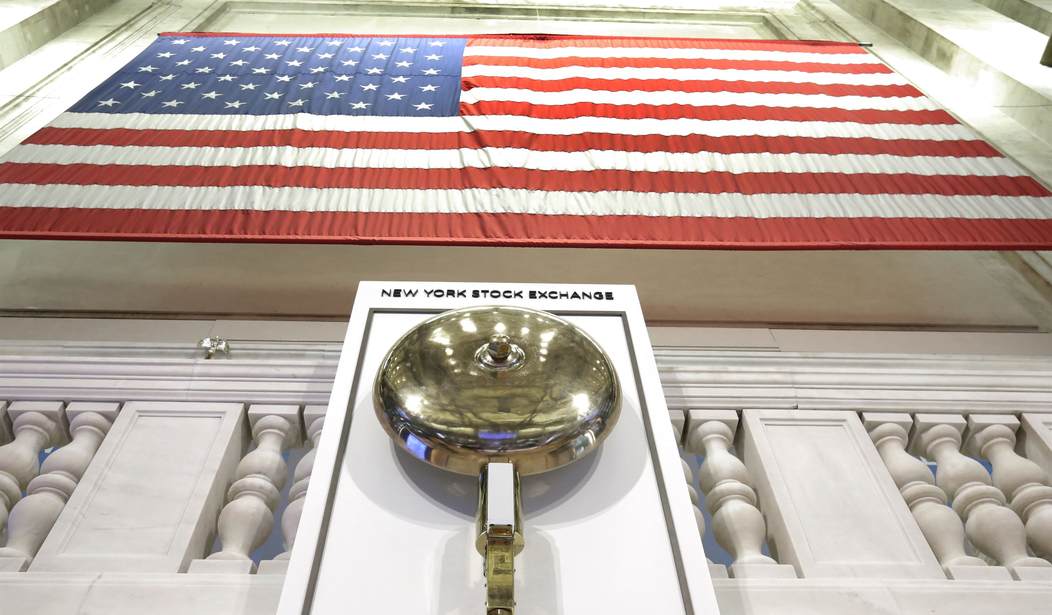When the Soviet Union collapsed in 1991, many believed the idea of socialism collapsed with it. In a 2006 interview, the great economist Milton Friedman stated, "We have a freer world because of the collapse of the Soviet Union." Friedman went on to explain that he thought the rise of capitalism and decline of socialism was inevitable, as unfree countries witnessed the prosperity of free ones.
Unfortunately, a mere 13 years after Friedman’s statement, the forward march of freedom doesn’t look so inevitable. Even in America, capitalism’s greatest triumph, support for socialism is on the rise. Alexandria Ocasio-Cortez recently called capitalism “irredeemable.”
The common explanation for this trend towards socialism is that people just don’t know history. While this ignorance certainly plays a role in the rising popularity of socialism, there may also be a more introspective explanation: capitalism is missing its visionary advocates.
By nature, supporters of capitalism tend to focus on objectivity and rationality. Conservative commentator Ben Shapiro has made famous the phrase, “Facts don’t care about your feelings.” This line resonates strongly with people who prioritize logic—those who are labeled “thinkers” under the Meyers-Briggs personality framework. These are the types of people who are convinced by facts and data. The sheer mountain of evidence in favor of capitalism is all that is needed form them to support a free economy. However, for the other half of the population—Meyers-Briggs’ “feelers”—facts simply are not enough.
One of the most eloquent advocates of capitalism in the 20th century, economist F.A. Hayek, understood that supporters of a free society could not simply ignore those who didn’t respond to factual arguments.
Recommended
Writing shortly after World War II, Hayek said that it was imperative to understand what attracted people to socialism. Hayek noted that intellectuals especially tended to accept ideas based not on factual merits, but on how well those ideas fit into their preconceived picture of the world. While it is easy to dismiss this type of thinking, Hayek understood that these same people were the intellectual gatekeepers for the rest of society. They had to be won over if capitalism was to be accepted generally.
To bring this issue closer to our time, it was the flower children of the '60s who grew up to become college professors and academics in later decades. They were the dreamers and radicals, but with time they were also able to gain the levers of power. While some outlets mourned the retirement of this generation, it’s no secret that college faculties continue to be heavily biased towards left-wing ideologies.
Hayek’s solution was not to lament the existence of this worrying trend. Instead, Hayek chastised his fellow capitalists. According to Hayek, it was only the socialists who offered ideas which opened new horizons. Capitalists, because of their many triumphs in the first half of the 20th century, had become too content and concerned themselves only with what seemed immediately practical. Thus, those who were attracted to big ideas almost unanimously found themselves drawn into the socialist camp.
It wasn’t always true that left-wing ideologies owned the public’s imagination. Early into the American Experiment, numerous observers wrote glowingly about the unique pathos of capitalism. When visiting America in the 1830s, French nobleman Alexis de Tocqueville found that “the inhabitants of the United States almost always manage to combine their own advantage with that of their fellow citizens.” Tocqueville was awed and inspired by America’s prosperity and industriousness, accomplished without any top-down governmental structure. Tocqueville’s book remains one of the most popular writings about the United States, largely because of his ability to express his heartfelt admiration of the American vision.
What excites the average person about the state of capitalism today? Unfortunately, it’s not capitalism’s triumphs over poverty and hunger, no matter how clear that data is. No, the most popular symbols of capitalism are America’s titans of industry: people like Steve Jobs, Elon Musk, Mark Cuban—the visionaries with larger-than-life personalities. These are the type of people who, to paraphrase Hayek, inspire the imagination.
Capitalists certainly face an uphill battle. Capitalism, by definition, is decentralized and unplanned. Capitalists can’t simply propose large-scale programs as a cure for all of the world’s ills. But what capitalists can do is get off the defensive. Instead of making apologies for every misstep by business, or looking back at the past successes of capitalism, advocates of a free society must be able to sell others on the future.
If capitalism is to regain its standing among the general public, its advocates must be willing to dream big, to put forward a vision of a capitalistic utopia that does not confine itself merely to what is politically feasible. The message must be not only that capitalism is redeemable, but that truly free markets are the premiere path to a brighter future.
























Join the conversation as a VIP Member